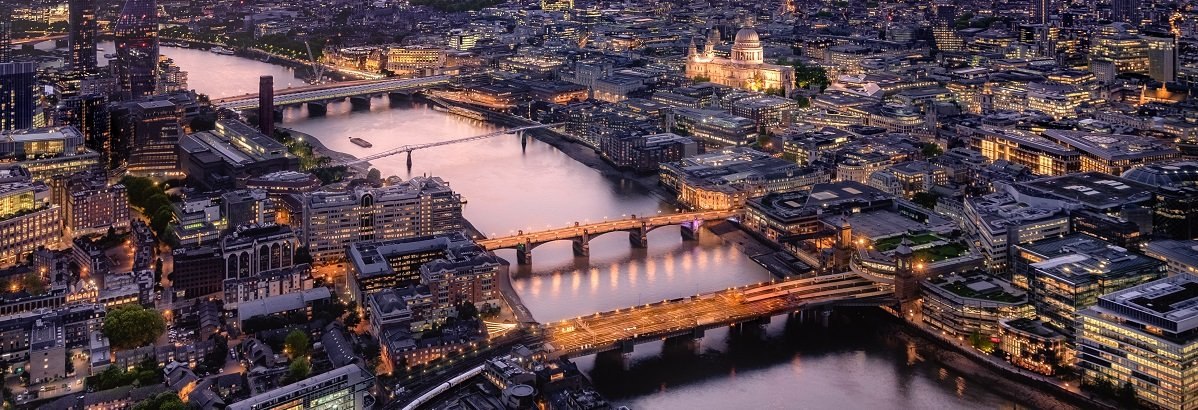Covid is going to change many things. We’re only beginning to realise what they might be. Some changes will be forced upon us but some will come as a result of our facing new choices, of making new calculations about what does and doesn’t matter in our lives. Among them is the issue of where we live. Will cities go on being the places so many of us have preferred to make our homes, or is it the beginning of the end for them?
Throughout history cities have been a magnet. They’ve attracted people who wanted to get on or just to get away from the travails of the life they were born into. That’s certainly the history of British cities. From the late eighteenth century on people abandoned the land and the villages where they were brought up to find fortune in the big cities of the new industrial revolution, like Birmingham and Manchester. The same phenomenon, but on a more massive scale, has been seen and can still be seen in modern China.
Migrating to cities has never been a bed of roses. You’ve only got to read the odd novel from the nineteenth century to realise that. Moving to the cities usually meant moving to slums, with their overcrowding, their crime, their violence and their susceptibility to disease. Yet people kept on coming. Unless you think people act only like lemmings you have to accept that they made the rational calculation that, all in all, it was worth it.
In our own time that magnet has maintained its force. London, in particular, has, at least since the 1970s when its population actually started to fall, drawn in more and more people. These were no longer, of course, poor agricultural workers from Lincolnshire (their numbers had long ago dwindled to almost nothing). They were young people who saw London as ‘the bright lights’: a place full of people just like themselves, keen to get on, keen to get away from family and what they saw as the narrowness of provincial life, keen to become anonymous in the big city and so able to define their own lives as they wished and not as an older and more conservative generation had laid down for them. And keen to have fun.
Anyone who lived in London in the 1970s will see in today’s capital an utterly different place: a place of street life, vastly greater numbers of cafes and restaurants, (most of them no longer just the hangouts of the affluent middle class), a place of all-night clubbing and all-night public transport, of easily accessible booze, drugs and sex. And it’s not just the young for whom it has been transformed. There is now a hugely increased international element to the population of London, not just the new immigrant population seeking work at the sharp end of the service economy, but all the foreign bankers and financiers who’ve made London their home since the ‘Big Bang’ of 1986 turned London into the financial capital of the world. Why are they here? Because, they tell us, London is such a great place to live: all that history, the green London squares, the theatre and the opera, the north London dinner parties where they can meet like-minded people who also want to bang on about Brexit over their scallops and lamb. Why would anyone want to live anywhere else?
So why might this be about to change? It can be summed up in a simple, post-Covid equation:
Cities = crowds
Crowds = risk of infection.
And it’s not a straightforward, linear equation, either. The theoretical physicist Geoffrey West showed a few years ago that as cities grow in size, the risks they entail (like infection, but also other things like violent crime) grow at a greater rate, so if cities double in size, the risk more than doubles.
The problem is already evident. It’s not just that London was ahead of everyone else in contracting and spreading the virus and in suffering the fatalities that quickly ensued; it’s that the poorest boroughs, like Newham and Brent, suffered most. Perhaps a new Dickens will emerge to bring home to the rest of us quite how dreadful conditions are in Covid London outside the bright lights just as he showed how the slums of the 1850s were very different from the beau monde. In short, Covid may at least make those at the bottom end of the social and economic ladder wonder whether the city game is worth the candle or whether they’d be better to get out if they can or not to flock here in the first place.
But it’s not only the poor who may be having second thoughts. The rich, and even the reasonably affluent, have, by definition, more options. They have greater freedom to weigh the pros and cons of city living and Covid has certainly added to the weight of the cons and removed some of the ballast of the pros. If a large part of the pleasure of living in cities, and especially London, has been the cultural life, the going to the theatres, the opera, the galleries, the museums, and also the social life – all those Islington dinner parties – then a great deal of it has suddenly been snatched away, possibly for a very long time. For they all entailed ‘the crowd’, or at least they are incompatible with social distancing.
This group might put up with that loss if they still felt the need to live here in order to earn the incomes they have become accustomed to. But that too is changing. Digital life is transforming the world of work and the experience of working from home during the lockdown has made many people who are able to do so realise it could become the norm not the exception. In this new digital world, there’s no need to go on living in cities like London because you no longer need to trek into the office. The boss of Barclays remarked the other day about his bank’s huge, status-advertising office block in Canary Wharf, not yet forty years old, that it had probably had its day. In other words, the financiers may be off to their country pads with their 5G.
If Covid were to have this effect of completely changing the calculation people at both the top and the bottom end make about whether cities are the places to live, then it could have a dire effect on the future life of the city. Take away the power of the economic engine and everything else starts to decay. Remove the crowd and everything that depends on the crowd starts to wither. Ask the pubs, the restaurants, the shops, the Opera House. And of course it has all happened before.
Once cities lose their economic function they go into slow decline. Ask Liverpool. It’s not that vast efforts have not been made to try to maintain its vitality in areas other than its humour. But it is a constant and difficult effort and no one could claim that the Liverpool of today bears any resemblance whatsoever to the Liverpool of a hundred years or more ago when its status as the greatest port in the world drew the world, from Ireland to China, to come to live in it.
So are cities doomed? Of course not, you might protest. Once there’s a Covid vaccine life in cities will return to normal. But can we be so sanguine? For one thing, there may not be an effective vaccine. Even if there is, Covid-19 may not be the end of the threat that disease poses to the life of cities. This may be just the beginning. And it’s not only disease that makes crowds potentially so unattractive to live among. Cities are vulnerable to many other threats. Take cyber-warfare, for example. If a hostile country, or even some maniac geek, managed to bring our economy to a juddering halt overnight by hacking into the essential computer systems that keep it all running, it would be cities that felt it first. And then the ‘crowd’ could very easily turn on itself.
To some people the summer 2011 riots were a foretaste of the possibility of civil breakdown. Back then such anarchy was avoided because it turned out to be little more than a bit of opportunistic looting. But some noted how helpless the police were to stop it and point out that, unlike France say, Britain doesn’t have the sort of paramilitary police force capable of quelling civil breakdown. Does anyone think an army of 80,000 would be enough to sort things out if civil breakdown turned our cities into a battle for survival among one and all? It’s a question at least worth asking when we ponder whether we should go on living in cities.
In short the calculus of city living is undergoing a big change. I don’t pretend to know which way it will all end. It may be that after the alarms of today the calms of yesterday will re-establish themselves. But it could be that living in cities will become a fashion of the past. That leads to an obvious final question: would this be a bad thing?
The answer probably depends on where you’re living. The answer among those living outside cities may well be: ‘No, it’s actually quite a good thing’. Non-city-dwellers have long looked askance at cities and at London in particular. Cities have always got above themselves, they think. People who live in cities look down on provincials, think themselves superior, and get all the perks: think transport subsidies. So cities will deserve their comeuppance. And life in the country is anyway so much more congenial, more ‘human’.
For those living in cities, the answer will be different. For the affluent there will be sadness. Those dinner parties and opera outings were such fun and loss is always hard to take. Still, their migration out of the cities provides new opportunities. Maybe regional theatre will revive and there’s always the possibility that provincial dinner parties singing the praises of Brexit might bring their own unexpected pleasures. For the poor, however, the decline of cities won’t have such a silver lining. It’s always the poor who are left in cities on the slide. And they are left in a place dying before their eyes, with fewer opportunities to make their lives better and little chance of escape.
Where does this leave us? Does Covid spell the beginning of the end for city living or not? And if it were to happen would you celebrate or mourn its passing?
What’s your view? Let us know.









